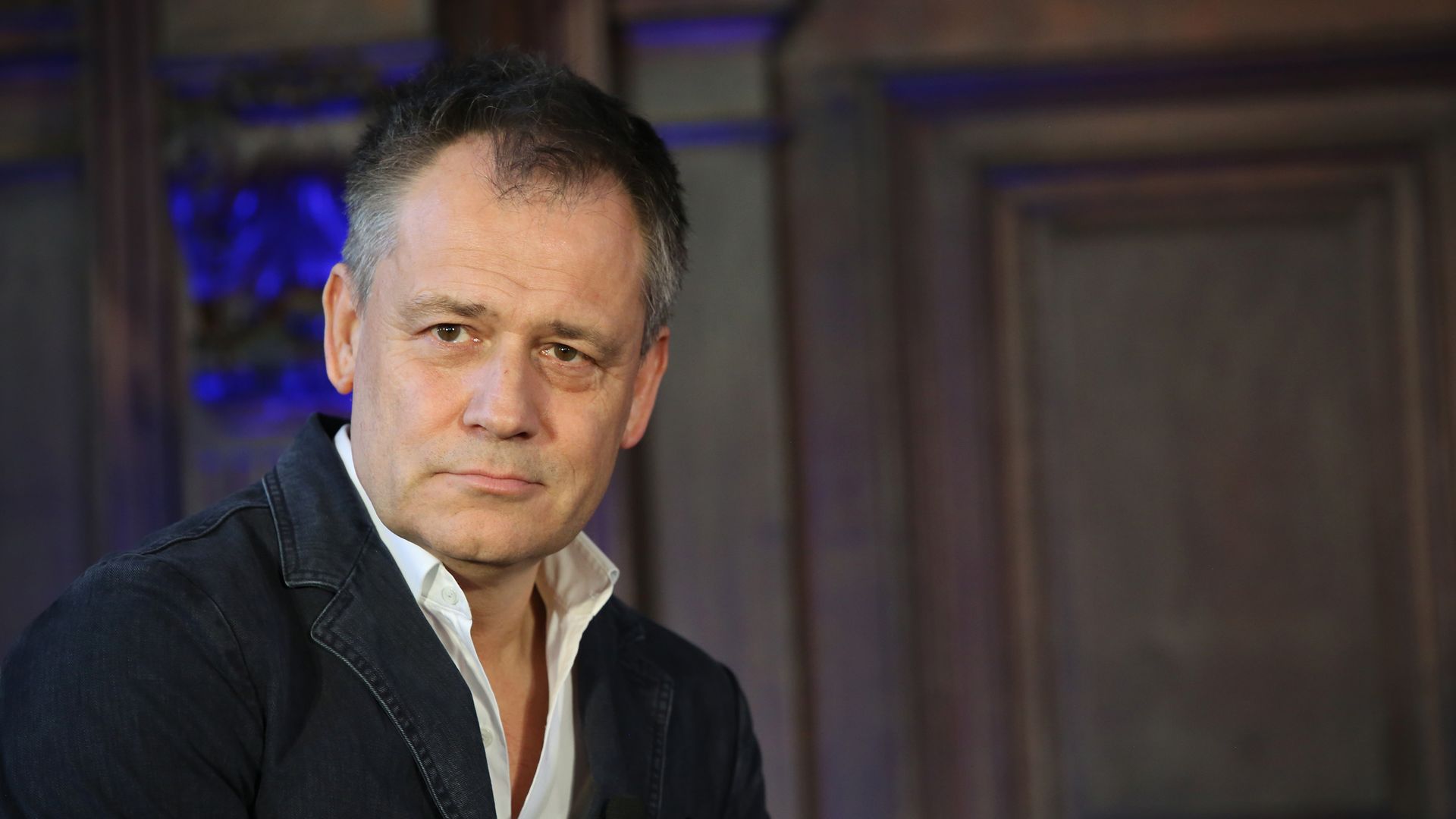
TIM WALKER on his friend, the director Michael Grandage.
The first time I remember talking to Michael Grandage was as he was standing anxiously in the foyer of the Donmar Warehouse Theatre in Covent Garden. It was the first night of Frost/Nixon. “I’ve been looking forward to this one,” I said. He replied: “I’m terrified.”
The show turned out to be another of Grandage’s triumphs as a director – West End and Broadway transfers and then a film – but his relationship with Frank Langella, whom he’d cast as the disgraced American president, had been challenging to say the least and it’s no wonder he’d been biting his nails.
I’d taken a lofty view of the Donmar when I’d started out as a theatre critic and even remember asking my arts editor if there was any point troubling with a place that could accommodate only 250 souls. He raised his eyes to the heavens. I soon came to understand that, with the right individual in charge, even the tiniest venue can come to dominate theatreland and that was how it was during Grandage’s decade at the Donmar.
I look back on my relationship with his theatre as if it were a stormy romance. The first year I gave it one rave review after another. The second year I think my hopes were so unrealistically high that they could only possibly be dashed.
I took Grandage to lunch at the Caprice in St James’s and he wondered why I’d suddenly turned. I replied that he’d caused me to recalibrate the meaning of good and bad theatre. I’ve no doubt he saw me as an absurdly pretentious pillock, but he understood that I was at least interested, fully engaged and trying to learn and it was on that basis that we became good friends.
Born in Yorkshire and raised, like me in the West Country, he’d started out, like so many of the greatest directors, as an actor. I happened to see him as a dashingly handsome young man in a re-run of Rumpole of the Bailey the other day, playing the boyfriend of the curmudgeonly old barrister’s daughter. He demonstrated an exceptional gift for comedy.
His heart was, however, set on being a director and, in 1996, he made his debut at the Mercury Theatre, Colchester, with Arthur Miller’s The Last Yankee. Two years later, he was invited by Sheffield Theatres to direct Twelfth Night. In the same year, he made his London directorial debut at the Almeida with a production of Shaw’s The Doctor’s Dilemma.
He then began a five-year innings as the artistic director at Sheffield Theatres from 2000, where he became known as an actor’s director and had some of the brightest and the best queuing up to work for him, including Joseph Fiennes in Edward II, Kenneth Branagh in Richard III, Diana Rigg in Suddenly Last Summer and Derek Jacobi in The Tempest.
It doesn’t do to over-analyse magic, but Grandage productions always look stunning. His other half is the award-winning designer Christopher Oram and I got the impression when they worked together each scene was composed in their heads as if it was a great classical painting. Grandage always grasped, too, the essential messages of the plays. After Peter and Alice, about an encounter between Alice Liddell Hargreaves, the woman who inspired Alice, and Peter Llewelyn Davies, one of the boys who inspired Peter Pan, I recall him talking about it with real emotion. He said it was all about childhood and how if you’ve a happy childhood it’s the strength on which you draw for all the challenges that come in adult life.
In 2014, he directed his first film, Genius, about the relationship between the author Thomas Wolfe and his editor Max Perkins, which starred Colin Firth, Jude Law and Nicole Kidman. Grandage sought artistic rather than overtly commercial success and he achieved it brilliantly. He’s now at work on Jack and Lem, which chronicles the 30-year-friendship between John F. Kennedy and Kirk LeMoyne “Lem” Billings, a schoolboy friend of the future president who happened to be gay.
I’ve talked periodically to Grandage during the lockdowns and he and Oram are the only two people I know who have found in them a kind of contentment. I suppose it’s because they’ve never once done anything half-heartedly that they’ve achieved what the Quakers call ‘peace at the centre’. They’re also the best kind of friends in that they’ve managed to educate me a bit.
Warning: Illegal string offset 'link_id' in /mnt/storage/stage/www/wp-includes/bookmark.php on line 357
Notice: Trying to get property 'link_id' of non-object in /mnt/storage/stage/www/wp-includes/bookmark.php on line 37







